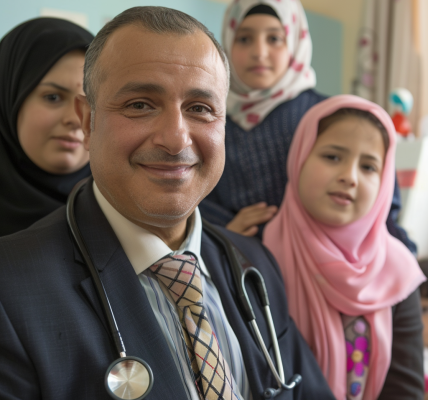New Initiative Launched to Accelerate mRNA Vaccine Development for Avian Influenza in Low-Income Countries
In a significant advancement for global health, a new initiative has been launched to accelerate the development of messenger RNA (mRNA) vaccines targeting human avian influenza (H5N1). This project, spearheaded by Sinergium Biotech, an Argentinian manufacturer, is set to enhance vaccine accessibility for low- and middle-income countries (LMICs).
The initiative utilizes the framework of the mRNA Technology Transfer Programme, a collaborative effort between the World Health Organization (WHO) and the Medicines Patent Pool (MPP). This program, which began in July 2021, aims to empower LMICs in the research, development, and production of mRNA-based vaccines.
Sinergium Biotech, a key partner in this initiative, has already developed candidate vaccines for H5N1 and is currently focused on establishing proof-of-concept in preclinical models. The ultimate goal is to gather sufficient data that can be shared with other manufacturing partners, thereby expediting the development of H5N1 vaccine candidates and enhancing global pandemic preparedness.
Dr. Tedros Adhanom Ghebreyesus, WHO Director-General, emphasized the importance of this initiative, stating, “This initiative exemplifies why WHO established the mRNA Technology Transfer Programme – to foster greater research, development, and production in low- and middle-income countries, so that when the next pandemic arrives, the world will be better prepared to mount a more effective and equitable response.” This sentiment highlights the critical need for equitable access to vaccines, particularly in regions that may be disproportionately affected during health crises.
Charles Gore, Executive Director of MPP, also shared insights into the project’s vision. He noted, “When we created the mRNA Technology Transfer Programme with WHO, our goal was to enable low- and middle-income countries to lead development efforts, foster collaboration, share resources, and disseminate knowledge. This project embodies our vision and demonstrates a strong commitment to future pandemic preparedness and response.”
The avian influenza virus poses a significant public health threat due to its prevalence in animal populations and its potential to incite a pandemic. This new initiative complements ongoing efforts under the Pandemic Influenza Preparedness Framework, which aims to enhance the sharing of influenza viruses that could lead to human pandemics, while also improving LMIC access to essential vaccines.
Dr. Jarbas Barbosa highlighted the initiative’s broader implications, stating, “This announcement underscores the importance of not only geographically diversifying the innovation and production of health technologies but also recognizing the capacities in Latin America and the Caribbean. It is crucial to plan early for access and to share knowledge and technologies throughout the research and development processes.” This approach is vital for ensuring that countries are not left behind in the race to develop effective health solutions.
The global health community is hopeful that this initiative will not only accelerate the development of H5N1 vaccines but also serve as a model for future collaborations aimed at enhancing pandemic preparedness worldwide. By investing in the capabilities of LMICs, the initiative seeks to build a more resilient global health infrastructure, ensuring that all nations can respond effectively to emerging health threats.
As the world continues to grapple with the ramifications of past pandemics, initiatives like this one are crucial for fostering innovation and collaboration in vaccine development. The focus on mRNA technology reflects a broader trend towards utilizing cutting-edge science to address urgent public health challenges.
With the backing of WHO and MPP, the potential for this initiative to reshape the landscape of vaccine development and distribution in low-resource settings is significant. As Sinergium Biotech and its partners move forward with their research, the implications for global health equity and pandemic readiness will be closely monitored.
Overall, this initiative marks a pivotal moment in the ongoing fight against infectious diseases, underscoring the need for a united global effort to enhance vaccine development and accessibility. The commitment to empowering LMICs in this domain is not just a strategic decision but a moral imperative that could save countless lives in the future.





